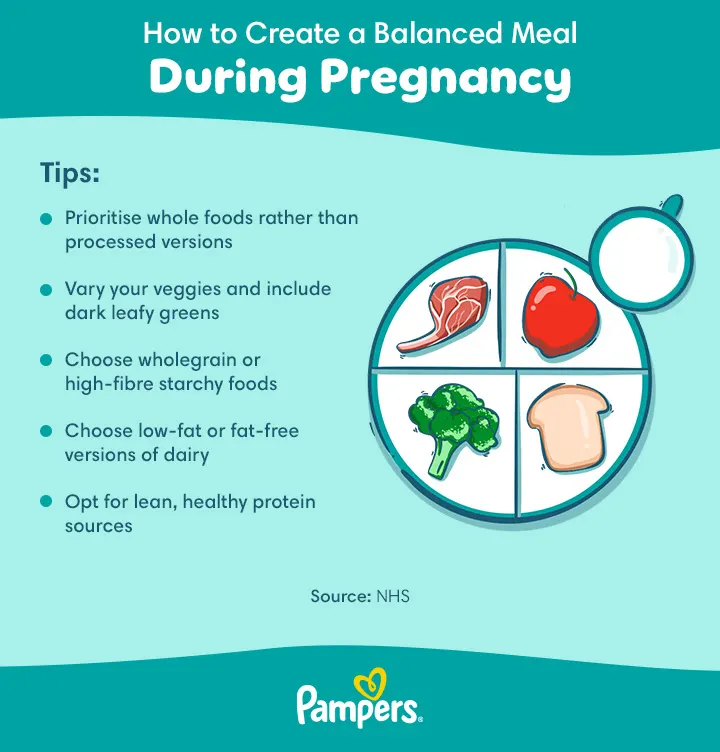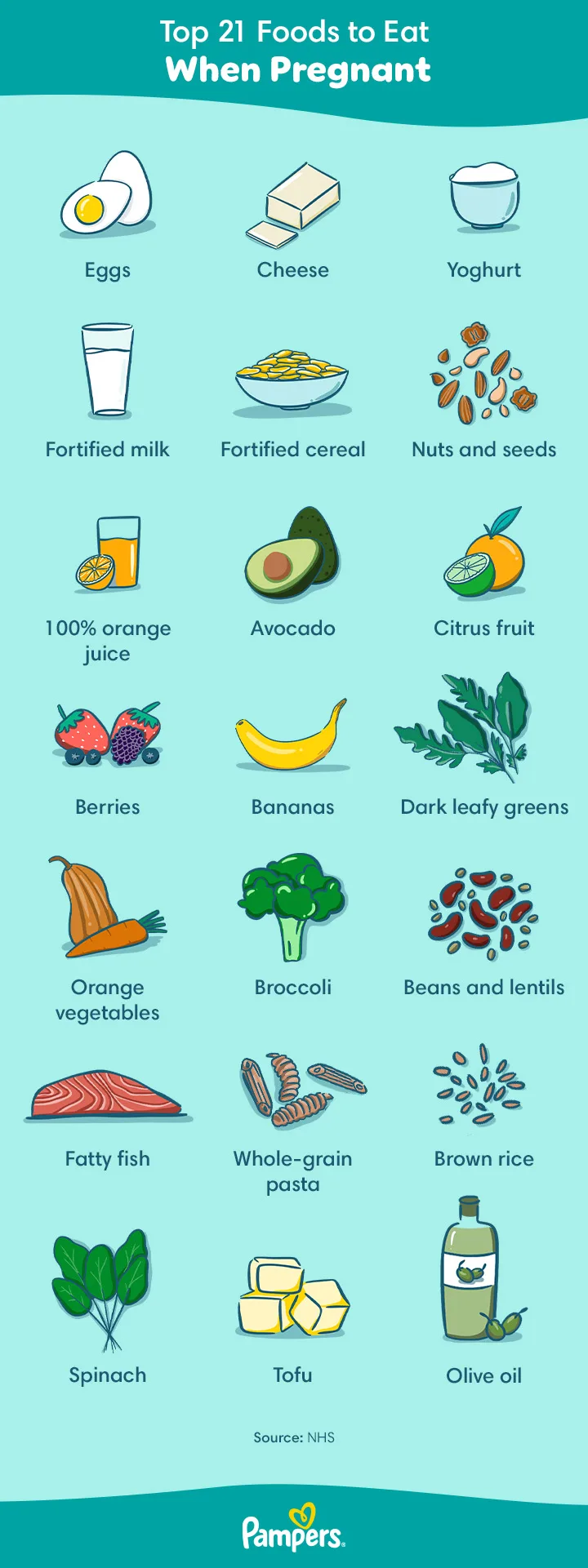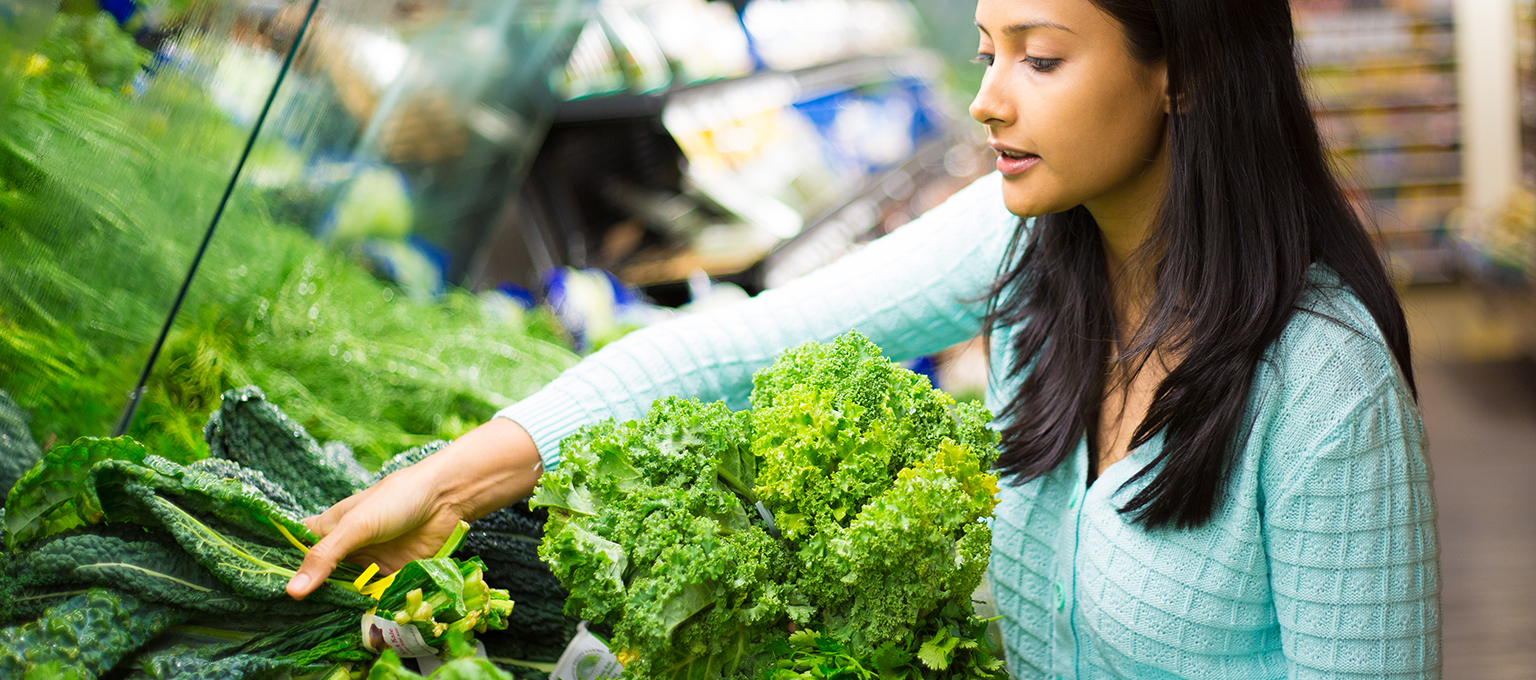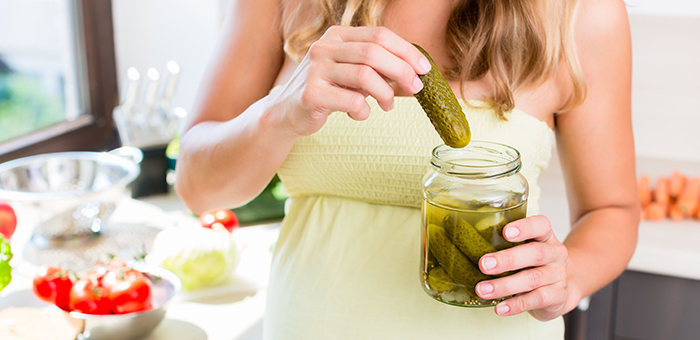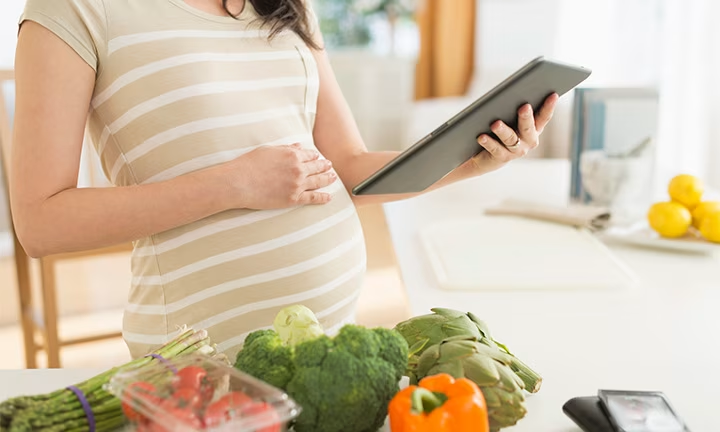
Pregnancy Diet: Foods to Eat During Pregnancy
During pregnancy, the food you eat becomes more important than ever because it’s not just about your own health and nutrition but that of your little one as well. While there’s no need to follow a strict meal plan, there are some simple guidelines on some of the best foods to eat during pregnancy and how to get your daily nutritional intake in your diet. If you’re a vegetarian or vegan we also have some pregnancy diet tips especially for you.
What Is a Healthy Pregnancy Diet?
Despite the name, a pregnancy diet is not about weight loss. In fact, trying to cut calories while pregnant could harm your foetus. It’s just about what kind of foods to make a part of your regular diet during pregnancy, and which foods to avoid.
There’s no special pregnancy meal plan that you should follow to the letter when you’re pregnant. Instead, following a healthy diet during pregnancy is all about balance: You’ll want to get the right quantities of protein, carbohydrates, minerals and vitamins from these four main food groups:
Pregnancy Weight Gain Calculator
Fill out your details:
Pregnancy Diet Plan
Eating for two doesn’t actually mean doubling your portions. Most pregnant people only need to add an extra 200 calories per day to their diet plan in the third trimester of pregnancy. This is roughly equivalent to a couple of slices of buttered wholemeal toast or a 100 gram portion of grilled chicken breast (without the skin) and a small salad (without dressing).
A lot of the weight you put on during pregnancy is due to the growth of your foetus, the amniotic fluid and placenta, but you’ll also be storing away fat to make breast milk after your baby’s born.
The amount of weight you gain varies depending on lots of factors, including your pre-pregnancy weight. Use our pregnancy weight gain calculator to see how much weight you might gain during pregnancy if you stick to a healthy, balanced diet.
Ask your doctor or midwife if you are unsure about how much weight you should be gaining or if you’re wondering what steps you can take to ensure you stick to a healthy weight gain.
Pregnancy Food Chart
During your pregnancy, you’ll want to strive for a balanced diet with various nutrients, including protein, carbohydrates, fats and key vitamins and minerals.
For a balanced diet plan when pregnant, check out our pregnancy food chart below for an overview of how to create healthy balanced meals.
Pregnancy Nutrition: What You Need to Eat
To ensure a healthy diet in your pregnancy, you need to consider your nutritional intake. You may need to increase your intake of certain nutrients, especially some important vitamins and minerals. The most important of these include:
If you’re interested in how to obtain these nutrients through diet, check out our table below, a good starting point for those whose pre-pregnancy weight falls into the ‘normal’ range. (Always work with your midwife and doctor when crafting a pregnancy diet, as everybody is unique.)
The Best Foods to Eat During Pregnancy
Not sure what to include in your pregnancy diet? Here are some ideas:
If you’re wondering what foods to add to your pregnancy diet plan, take a look at our visual below for 21 of the best foods to eat during pregnancy, whether you’re early on in your pregnancy or your second or third trimester:
Foods to Avoid During Pregnancy
If you’re wondering what foods to avoid during pregnancy, you can read our informative article and find out what not to eat.
A few examples include some fish and seafood that are high in mercury or other contaminants. Avoid eating swordfish, marlin, shark and raw shellfish. It’s also best to avoid unpasteurised dairy products and certain cheeses that may also contain harmful bacteria.
Drinks During Pregnancy
Staying hydrated is important, which is why you should drink at least six to eight cups of fluid daily. Water is the best option, but low-fat milk and other sugar-free drinks (including tea and coffee) all help you to stay hydrated while you’re pregnant.
So, what about alcoholic beverages, fizzy drinks, coffee, tea and others?
Tips for a Healthy Vegetarian or Vegan Pregnancy Diet
Just because you’re vegetarian or vegan doesn’t mean you can’t get all the nutrition you and your little one need in your pregnancy diet. You may need to adjust your eating habits to make sure you’re following a healthy vegetarian or vegan pregnancy diet, but there are plenty of non-animal food sources that can satisfy your nutritional needs.
Tips for Your Pregnancy Diet
Some pregnant people have cravings for certain foods during pregnancy. Like many other common early symptoms of pregnancy, this is thought to be caused by hormonal changes.
There’s no reason to completely avoid foods you crave during pregnancy, as long as you eat in moderation to avoid excessive weight gain. These food cravings tend to be particularly strong during the first trimester but usually pass with time.
If you crave non-food items like toothpaste, coal or even dirt, let your midwife or doctor know – this could be a sign of an iron deficiency.
FAQS AT A GLANCE
A good diet in pregnancy includes a variety of foods to get all the necessary nutrients for you and your baby. Try to eat a range of fruit and vegetables, starchy wholegrain foods such as bread, pasta and rice, moderate amounts of proteins from lean meat, fish, eggs or beans, and dairy foods for calcium. Also, focus on fibre-rich foods to prevent constipation and ensure you’re taking a folic acid supplement as advised by your midwife or doctor.
Bottom line
There’s a lot to think of when it comes to maintaining a healthy pregnancy diet, but as long as you’re getting a balanced diet throughout your week, don’t worry too much if you don’t quite hit your iron or calcium quota one day. And if you’re craving ice cream, it’s ok to treat yourself! Along with our helpful guide, your midwife and doctor will help you keep on track with your diet and pregnancy weight gain.
If you’re finding it harder than you thought to go without some of your favourite foods or drinks, try adding them to the list of things to look forward to once your baby’s born.
- NHS: Have a Healthy Diet in Pregnancy
- NHS: Healthy Eating for Pregnancy
- NHS: Vitamins, Supplements and Nutrition in Pregnancy
- NHS: Folic Acid
- NHS: Vitamin-B
- NHS: Foods to Avoid in Pregnancy
- NHS: Fat: The Facts
- NHS: What Are The Risks of Toxoplasmosis During Pregnancy?
- NHS: Healthy Eating
- NHS: Dairy and Alternatives in Your Diet
- NHS: Calcium
- NHS: Iron
- NHS: Vegetarian or Vegan and Pregnant
- NHS: Starchy Foods and Carbohydrates
- NHS: Sugar: The Facts
- NHS: Weight Gain in Pregnancy
- NHS: 5 A Day
- NHS: The Vegan Diet
- NHS: Obesity and Pregnancy
- NHS: Drinking Alcohol While Pregnant
Read more about Pregnancy
Related Articles
Join Pampers Club and get:

